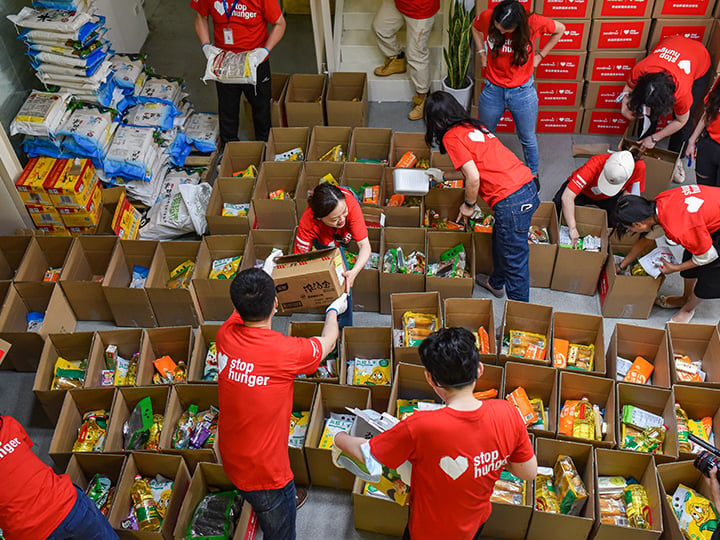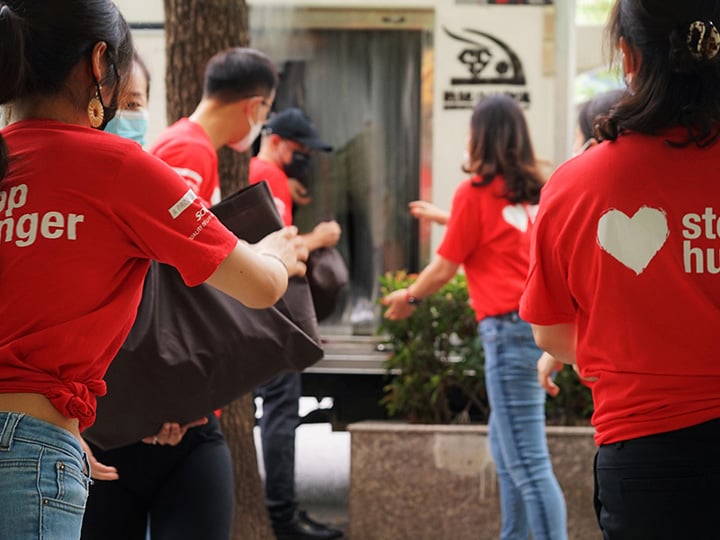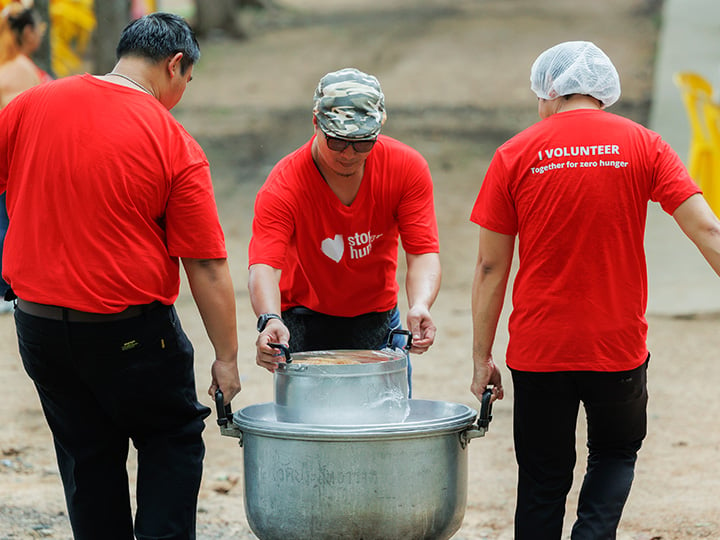Servathon is Stop Hunger’s annual global campaign that mobilizes volunteers worldwide to fight hunger through food drives and community action.
Food Aid
Hunger isn’t always a crisis - for many, it’s a daily struggle. That’s why our approach goes beyond emergency food aid. Across the world, we work hand in hand with food banks, local NGOs, and volunteers to run food drives, deliver surplus food and reach those in need. Our global network powers local action, supported by generous donors who make it all possible.
It’s a system that works: NGOs identify needs, food banks handle logistics, volunteers take action, and together, we help communities rise above hunger.
Emergency aid over the years

2025
In 2025, our teams across the globe mobilized to support communities in crisis, contributing over half a million dollars in aid. Together, we helped those impacted by hurricanes and floods in Poland, Mayotte, Spain, the Philippines, Colombia, and the United States; earthquakes in Myanmar and Thailand; and conflicts in Ukraine, the Middle East, and Africa.


